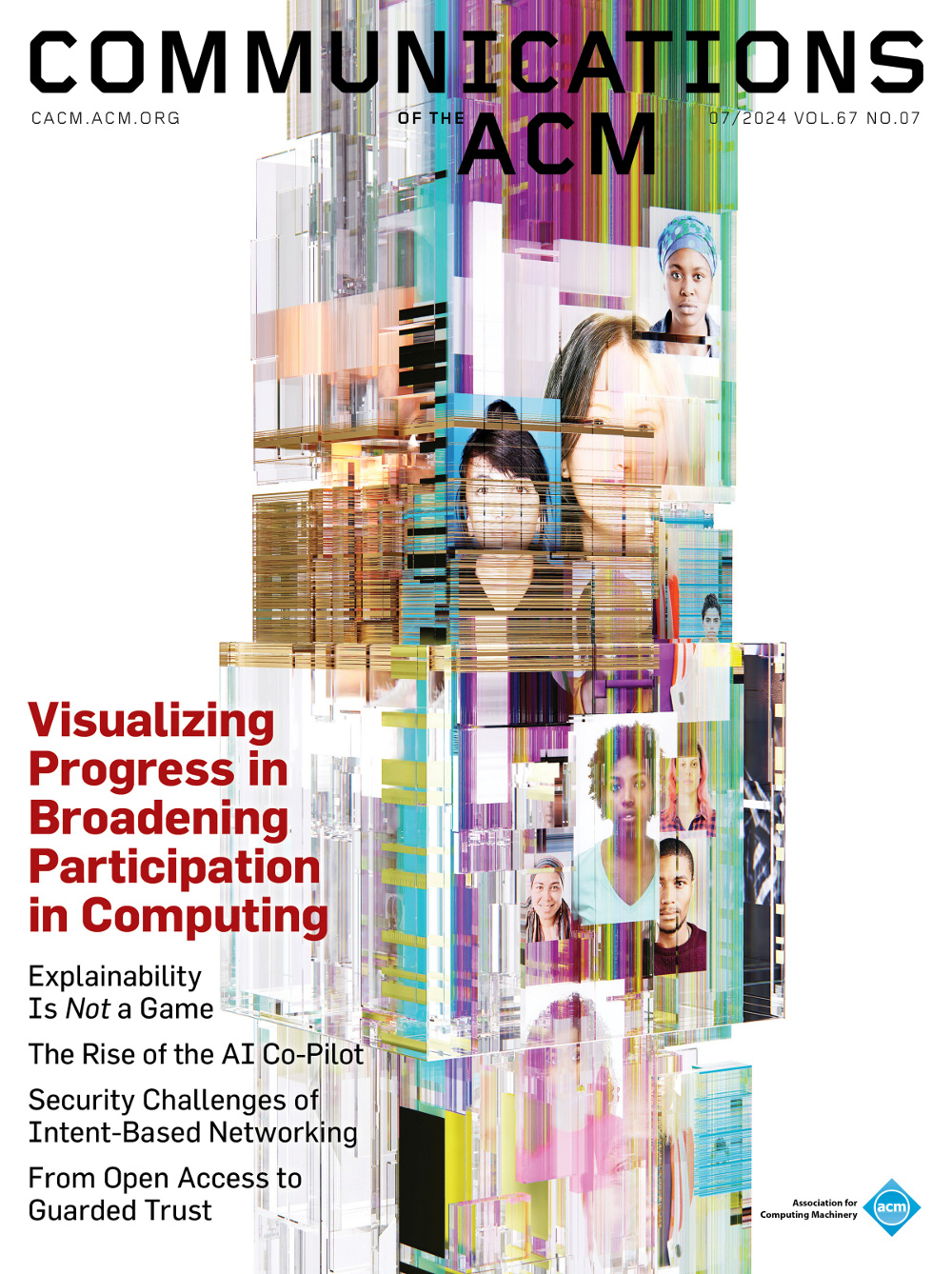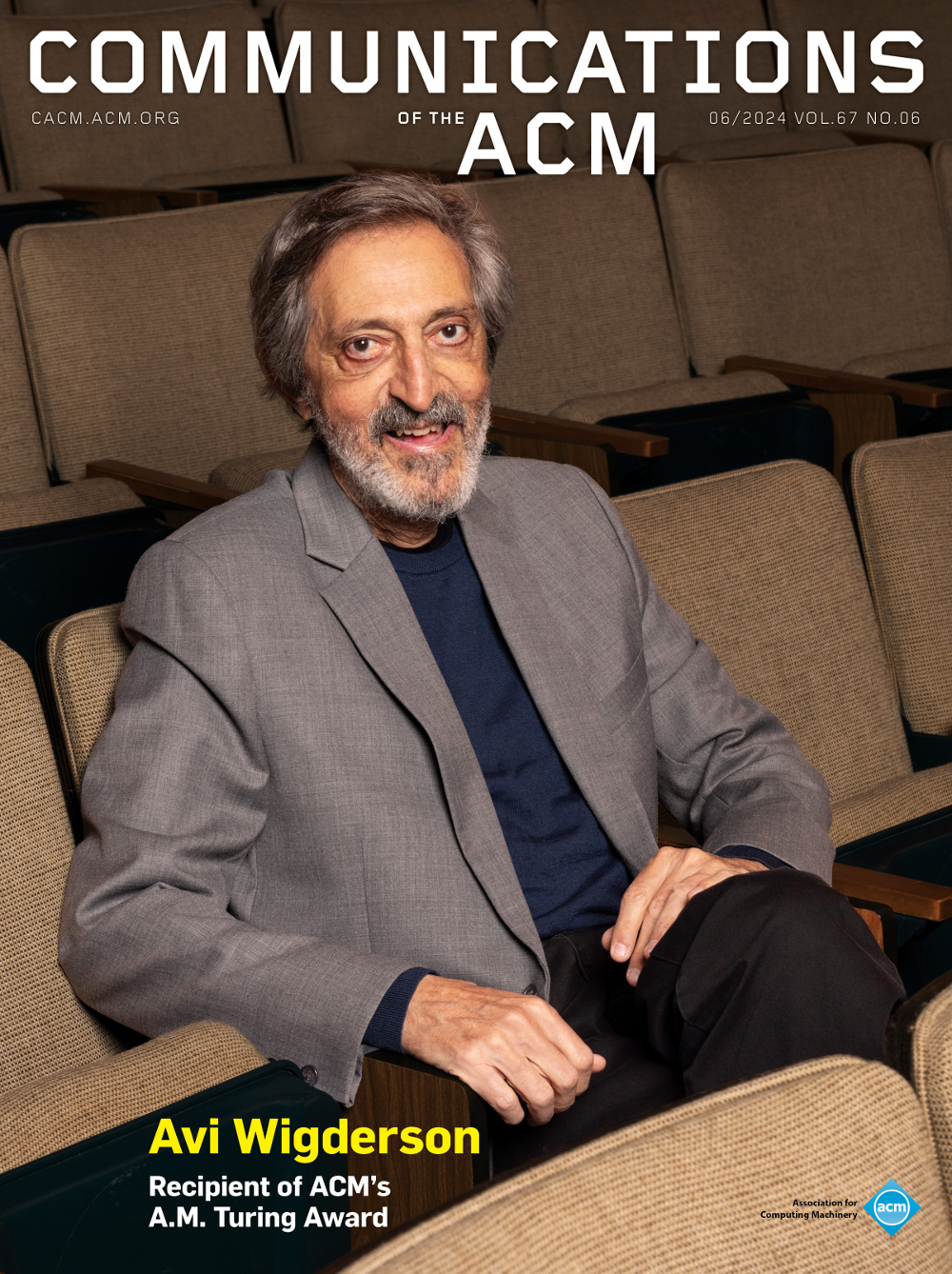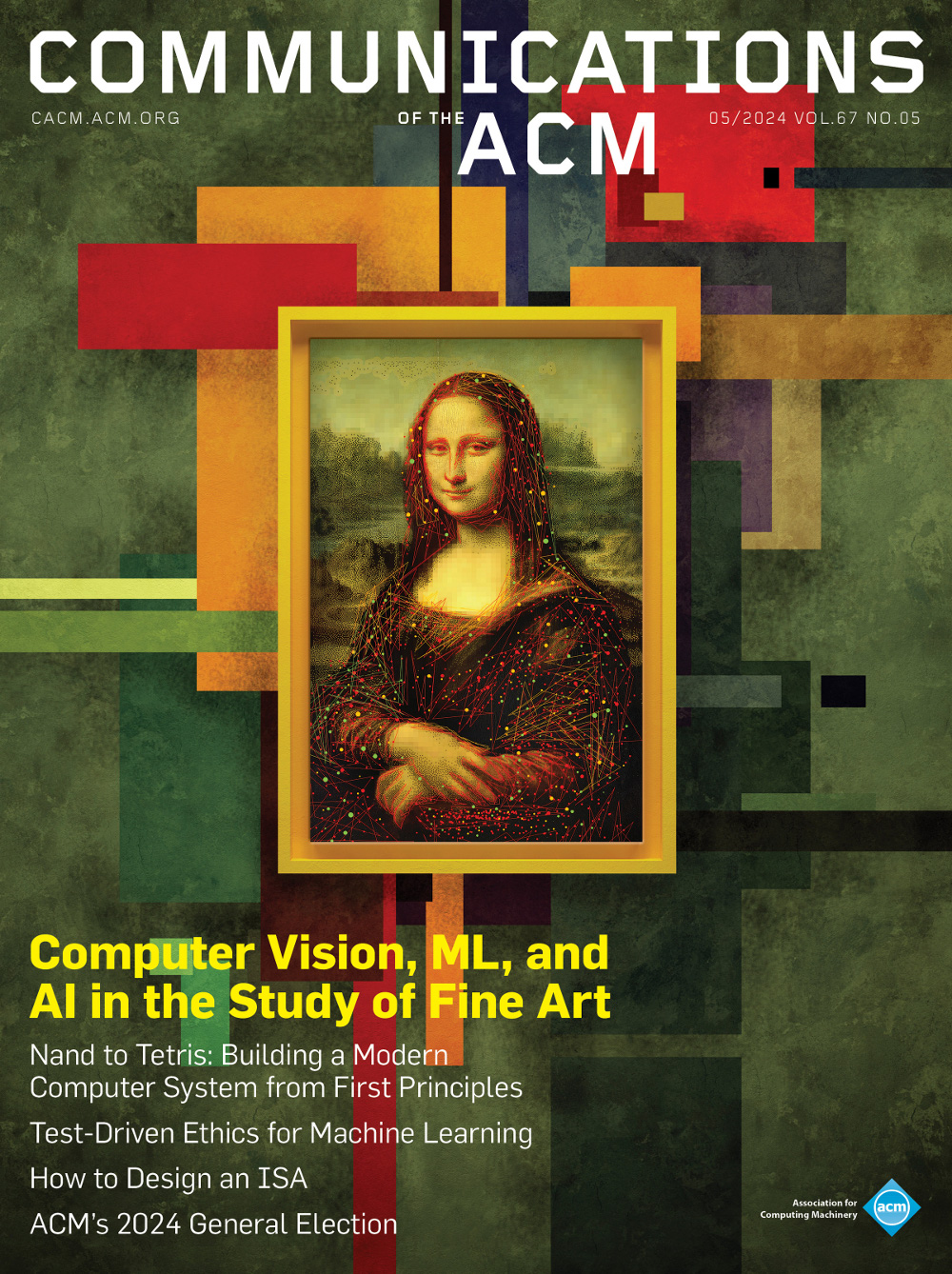July 1985 - Vol. 28 No. 7

Features
Structuring computer-mediated communication systems to avoid information overload
Unless computer-mediated communication systems are structured, users will be overloaded with information. But structure should be imposed by individuals and user groups according to their needs and abilities, rather than through general software features.
Strategic computing at DARPA: overview and assessment
Strategic Computing, a 10-year initiative to build faster and more intelligent systems, is ambitious, flawed by overscheduling perhaps and problems of definition, but basically sound.
A pragmatic view of the system architect
A whole-system designer, fire fighter, mediator, and jack-of-all-trades, the system architect brings unity and continuity to a development project—offsetting the inevitable compartmentalization of modern modular designs.
Paradigms for design and implementation in ADA
An examination of the respective advantages and disadvantages of three characteristic paradigms of design and implementation in Ada illustrates the importance of choosing the appropriate paradigm for a given set of circumstances.
Environmental and institutional models of system development: a national criminal history system
This article tests two competing theories of system development referred to here as environmental and institutional models. These models form the basis for most explanations of why systems are developed and utilized. We will examine both models in detail and apply them to a single set of data concerned with the emerging national computerized criminal history system (CCH). A hybrid model, which combines elements of environmental and institutional approaches, is also developed and tested. A substantive result of this new model will alter our understanding of why a national CCH system is being developed. At the theoretical level, we conclude that a hybrid model is more powerful than either an environmental or an institutional model taken separately and that future research must take this into account.
Transient exponential-Erlang queues and steady-state simulation
The transient probabilistic structure of M/Em/1 and Em/M/1 queues initialized in an arbitrary deterministic state is derived in discrete time. Computational algorithms for obtaining the required probabilities are provided, and their application in calculating a variety of system performance measures is illustrated. The results are used to investigate the question of initializing simulations of systems such as these to promote rapid convergence to steady state, if that is the object of the simulation. These results are consistent with earlier studies for transient queueing systems, such as the M/M/s, but allow greater flexibility in specification of interarrival or service-time models inherent in the Erlang distributions.



